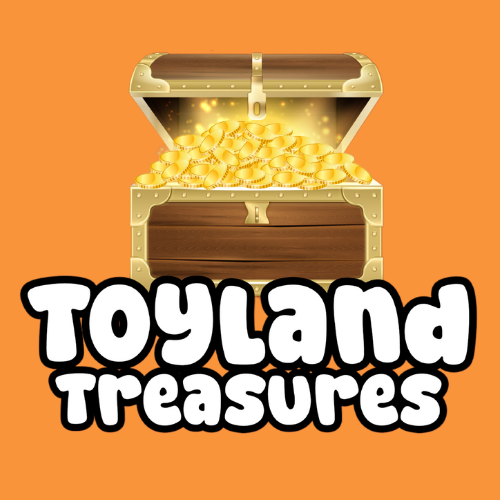Ultimate Guide To Buying Sensory Toys

What Are Some Considerations When Purchasing Sensory Toys?
Choosing the right sensory toys for your child can significantly impact their development and well-being. Sensory toys are specifically designed to stimulate one or more of the senses: sight, sound, touch, taste, and smell. These toys play a crucial role in helping children explore their environment and learn the essential skills for a healthy developmental journey.
They are particularly beneficial for children with sensory processing issues, providing essential sensory input that can help them feel more balanced and focused. However, not all sensory toys are created equal.
Below are some key considerations to keep in mind when purchasing sensory toys for your little one.
Age Appropriateness
Selecting toys that match your child’s age and developmental stage is crucial. Age-appropriate toys ensure that the activities and features align with your child's abilities and interests. This not only keeps them engaged but also ensures safety.
Safety Considerations
Safety is paramount when selecting sensory toys. Ensure that the toys are made from non-toxic materials and are free from small parts that could pose choking hazards. Look for toys that meet safety standards and certifications.
- Material Safety: Ensure the toys are made from non-toxic, BPA-free materials. Check for certifications like ASTM or CE marks.
- Durability: Choose well-constructed toys that can withstand rough play, especially if your child is younger or tends to be more physical.
- Choking Hazards: Avoid toys with small parts for younger children. Use a small-parts tester if you’re unsure.
Sensory Features
Consider the variety of sensory features the toy offers. The more sensory elements a toy has, the more opportunities it provides for stimulating your child’s senses. Look for toys that incorporate different textures, sounds, lights, and movements.
- Textures: Toys with varied textures can enhance tactile exploration and development.
- Sounds: Toys that make sounds can help with auditory processing. Ensure the sounds are not too loud to avoid damaging your child's hearing.
- Visual Stimulation: Bright colors and patterns can engage visual senses and help with visual processing skills.
Providing Educational Value
Opt for sensory toys that offer educational benefits. These toys can promote cognitive skills, fine and gross motor development, problem-solving abilities, and social interaction. Multi-functional toys that combine sensory stimulation with educational content can be particularly valuable.
As your child's brain begins to develop and they shift into preschool or early childhood, opting for educational toys or STEM toys allow fundamental concepts (science, technology, engineering, math) to be introduced.
Tailor To Your Child's Developmental Needs
Every child is unique, especially those with sensory processing issues. Tailor your toy selection to your child's specific sensory needs. Some children may require more tactile stimulation, while others might benefit from auditory or visual input.
- Sensory Seeking: If your child craves intense sensory experiences, look for toys that provide strong sensory input, such as vibrating toys or weighted blankets.
- Sensory Avoidance: For children who are sensitive to sensory input, choose toys that offer gentle stimulation and avoid overwhelming them.
Versatility and Adaptability
Consider toys that can grow with your child and offer multiple ways to play. Versatile toys that adapt to different developmental stages provide long-term value and continuous engagement.
- Multi-Use Toys: Toys that can be used in various ways help keep playtime fresh and engaging.
- Adjustable Features: Toys with adjustable settings can cater to your child's changing sensory needs.
Encouraging Social Interaction
Sensory toys that promote social play can help children develop essential social skills. Look for toys that encourage cooperative play and interaction with others.
- Group Play: Toys designed for multiple players can foster teamwork and communication.
- Role-Playing: Toys that encourage role-playing can help children understand social roles and develop empathy.
Maintenance and Cleanliness
Sensory toys, like all children's toys, need to be easy to clean and maintain. Choose toys that can be easily wiped down or washed to ensure they remain hygienic.
- Washable Materials: Plush toys or toys with removable covers that are machine washable are ideal.
- Simple Cleaning: Toys made from materials that can be easily wiped clean with a damp cloth or disinfectant spray are practical choices.
Making the Best Choice for Your Child's Sensory Development
Choosing the right sensory toys involves careful consideration of various factors, from safety and age appropriateness to sensory features and educational value. By selecting toys that cater to your child's specific needs and developmental stage, you can enhance their sensory experiences and support their growth in a fun and engaging way.
For more insights on sensory toys, visit our page dedicated to providing parents and gift-givers expert advice on toys - https://www.toylandtreasures.com.au/pages/toy-insights
At Toyland Treasures, we offer a curated selection of high-quality sensory toys designed to stimulate and delight. Explore our collection today and find the perfect toy to support your child's developmental journey.
Sensory Toys For Babies | Baby Toys | STEM Toys | Educational Toys
